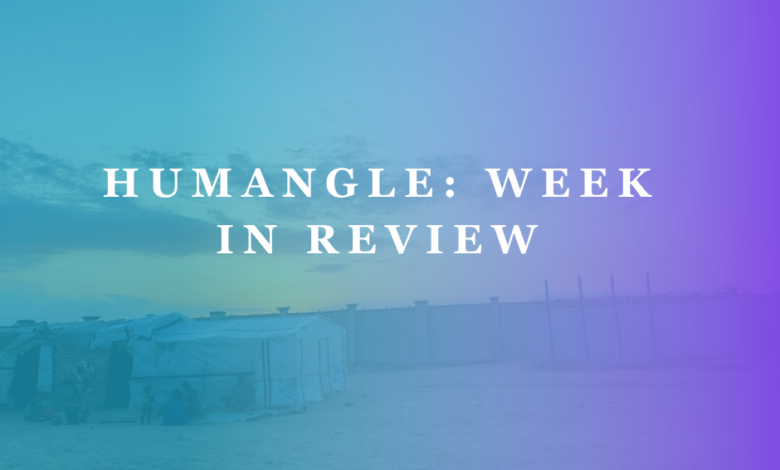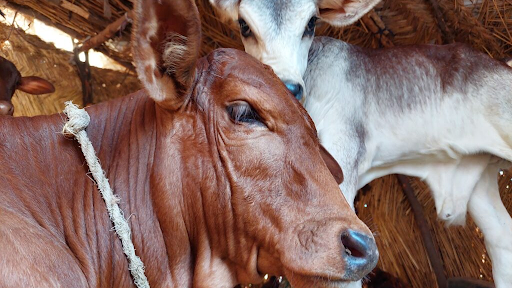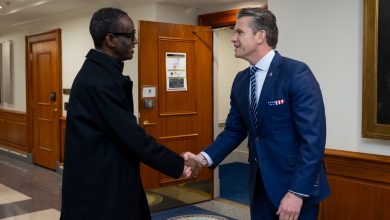HumAngle: Week In Review

Every day, HumAngle’s journalists and researchers gather, sort through, and file stories on issues important to society. We bring you stories about development, conflict, and humanitarian trends across Africa in hopes that we can improve understanding of the most pressing problems and improve people’s quality of life.
In this roundup, staff writer Umar Aminu Yandaki shares some of the most important pieces of reporting we published last week — in case you missed them.
THE TOP STORY

The Buni Yadi Tragedy: When The Boys Came
The Buni Yadi massacre of 2014 was done methodically by the Boko Haram terror group. As teenage boys slept in their school hostel, the insurgents threw balls of fire under their bunk beds, killing most of them.
This is the first feature in a series tagged “The Buni Yadi Tragedy”. Through the stories, HumAngle revisits the Buni Yadi massacre from the perspective of staff, parents of the deceased boys, and one boy who survived.
OTHER STORIES

The Buni Yadi Tragedy: The Boy Who Saw It Coming
This is the second feature story in the “Buni Yadi Tragedy” series.
A few months before the attack that killed him, Mustapha and his younger brother came back home from the boarding school, unannounced, all the way from Yobe state – some 300 km at least. There were rumours that the terror group would attack the school, he had said. He did not feel safe and neither did many students who had also been fleeing home. He had heard that there had been attacks in nearby locations.
The boy was right. Attacks were being recorded in many local government areas in Borno and, increasingly, Yobe. Boko Haram was famous for its anti-western education beliefs. It made sense that the school was in danger. It was close to places like Buni Gari that had been attacked already. For reasons such as these, many would come to believe the Buni Yadi massacre was avoidable.

Seeds Of Hope: How Tree Planting Is Making Kano Green
The need to plant trees in Kano State was not entirely Panacea Foundation’s idea. Around 2017 there were many social media campaigns to do so but there was no particular dedicated organisation steering their activities. What was there was a group of social media influencers and climate activists from Kano who came up with a campaign to plant trees in Kano city. They were successful in raising awareness and planting many trees through #PlantATree campaign, but there was a problem.
Hashim was one of those activists. He felt there was something missing in the campaign that could make it sustainable and take it to the next level. So, in 2018, he came up with the idea of creating an organisation that could make the campaign sustainable and take it beyond the internet.

Fact-check: Did Nigerian Forces Kill Foreigners Looking For Minerals In Lake Chad?
A video is being shared online alongside claims that it shows Nigerian military forces with dead Canadian and French nationals among Boko Haram insurgents. A review shows a different story, likely involving soldiers from neighbouring Niger.

Animals: Voiceless Victims Of Armed Violence In Northwest Nigeria
Cruelty to animals, Saheed Aderinto writes in his book Animality and Colonial Subjecthood in Africa, has been illegal in Nigeria since the 1940s when the first laws enabling the prosecution of people who inflicted brutality against animals were introduced. Despite increased knowledge of animal rights, rising insecurity has made the unjustifiable killing of animals rampant in the last decade. Thousands have been mercilessly macheted or killed in the melee between farmers and herders across the country or caught in the web of banditry.
Podcast: Witnessing The Buni Yadi Massacre
On Feb. 25, 2014, terrorists from the Boko Haram terror group attacked the Federal Government College, Buni Yadi, in Northeast Nigeria. They killed at least 29 teenage schoolboys as they slept in their dormitories and burned down all the buildings in the compound, from the hostels to the classrooms. Only the mosque survived.
Support Our Journalism
There are millions of ordinary people affected by conflict in Africa whose stories are missing in the mainstream media. HumAngle is determined to tell those challenging and under-reported stories, hoping that the people impacted by these conflicts will find the safety and security they deserve.
To ensure that we continue to provide public service coverage, we have a small favour to ask you. We want you to be part of our journalistic endeavour by contributing a token to us.
Your donation will further promote a robust, free, and independent media.
Donate HereStay Closer To The Stories That Matter




